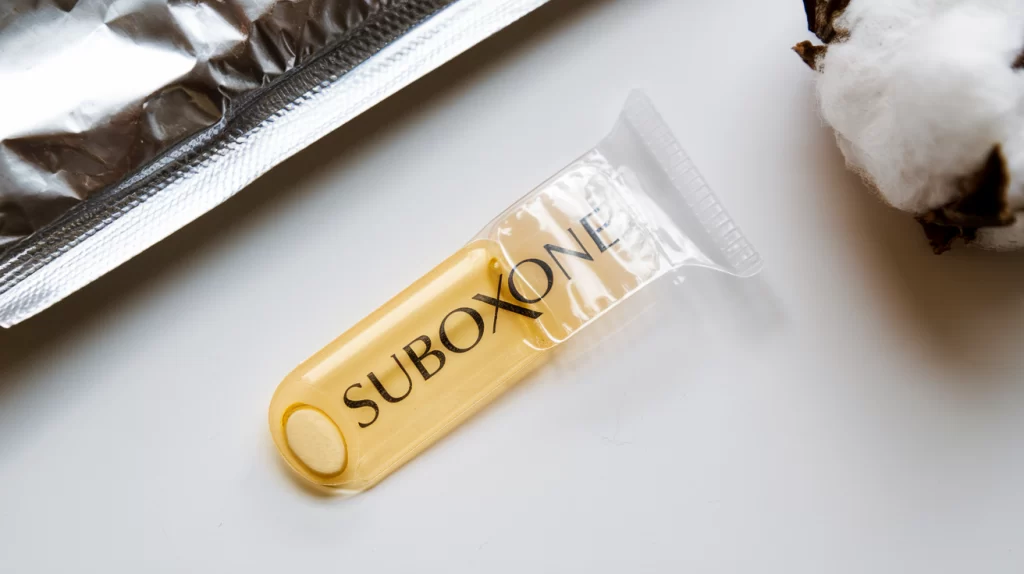Table of Contents
How Long Does Suboxone Block Opiates? Suboxone is a popular medication used to treat opioid addiction, but many wonder: how long does Suboxone block opiates? Understanding the duration of Suboxone’s effect is crucial for those in recovery and their loved ones. In this guide, we’ll explore the timeline of Suboxone’s blocking effects, how it works, and what you can expect on your journey to recovery.
What Is Suboxone and How Does It Work?

Suboxone is a combination of two main ingredients: buprenorphine and naloxone. Buprenorphine is a partial opioid agonist, which attaches to the same receptors in the brain as opioids but doesn’t produce the same intense high. Naloxone, on the other hand, is an opioid antagonist that blocks the effects of opioids, making it harder to misuse the medication. Suboxone lessens cravings and the symptoms of withdrawal when taken as prescribed. However, many wonder how long does Suboxone block opiates? The critical question for most people is, how long does Suboxone block opiates, and understanding this can guide effective treatment planning.
How Long Does Suboxone Block Opiates?
The blocking effect of Suboxone on opiates depends on several factors, including the dosage, the individual’s metabolism, and how long they’ve been using Suboxone. On average, Suboxone can block opiates for 24 to 72 hours. So, when considering how long Suboxone blocks opiates, it’s essential to keep these factors in mind, as they can affect the duration of the blocking effects.
Factors That Influence How Long Suboxone Blocks Opiates
- Dosage: The higher the dosage of Suboxone, the longer it will block opiates. For instance, a typical dose of 8 mg can block opioids for up to 24 hours, while a higher dose of 16 mg or more can block opiates for up to 72 hours.
- Metabolism: Individuals with faster metabolisms may process Suboxone more quickly, reducing the duration of its blocking effects. Those with slower metabolisms may experience a more extended period of opioid blockage.
- Length of Use: People who have been on Suboxone for a longer period may experience a more extended blocking effect because the medication builds up in the system over time.
Why Does Suboxone Block Opiates?
Suboxone blocks opiates because of buprenorphine’s strong affinity for the brain’s opioid receptors. When buprenorphine occupies these receptors, it prevents other opioids from binding, effectively blocking their effects. This is what makes Suboxone such a powerful tool in opioid addiction treatment.
The goal is to reduce the potential for relapse by ensuring that even if someone tries to take opioids while on Suboxone, they won’t experience the desired effects. This blocking action not only helps in recovery but also protects people from dangerous overdoses.
How Long Should You Stay on Suboxone?

Many wonder how long does Suboxone block opiates, and how long they should continue taking it. The answer isn’t one-size-fits-all. While some people may only need Suboxone for a few months, others might require it for several years or even longer. The length of treatment depends on individual circumstances, including the severity of addiction and the person’s overall recovery progress.
It’s essential to work closely with a healthcare provider to determine the right plan, considering factors like how long does Suboxone block opiates and the appropriate tapering or maintenance strategy to avoid withdrawal symptoms.
What Happens When Suboxone Wears Off?
Once Suboxone wears off, opioids can start to have their usual effects again. This means that if someone takes opiates after Suboxone’s blocking effects wear off, they may feel the opioid high and be at risk for overdose.
It’s critical to note that even after Suboxone has left your system, your body may still be more sensitive to opioids. This heightened sensitivity increases the risk of overdose, especially if someone attempts to take a high dose of opioids once the blocking effect has worn off.
Common Misunderstandings About Suboxone’s Blocking Effects
Several misconceptions about Suboxone can lead to confusion:
Suboxone Blocks Opiates Immediately
While Suboxone starts to work relatively quickly, it doesn’t instantly block opiates. After taking Suboxone, it can take anywhere from 20 to 60 minutes for the blocking effect to kick in.
Higher Doses Always Mean Longer Blocking Time
While higher doses of Suboxone tend to block opiates for longer, this isn’t always the case. Some people may not experience a significantly longer blocking effect with higher doses due to their body’s metabolism or other factors.
You Can’t Overdose While on Suboxone
This is a dangerous myth. While Suboxone reduces the risk of overdose by blocking the effects of opioids, it’s still possible to overdose, especially if someone takes a very high dose of opioids after the Suboxone wears off. It’s essential to remain cautious and follow medical advice closely.
Suboxone in the Recovery Process
Suboxone plays a critical role in the recovery process for many people struggling with opioid addiction. It helps reduce cravings and withdrawal symptoms, which can make the path to sobriety more manageable. By blocking the effects of opiates, Suboxone offers a protective barrier that helps prevent relapse.
Combining Suboxone with Therapy
While Suboxone is an effective tool in the fight against opioid addiction, it works best when combined with counselling and therapy. Many people find that individual or group therapy helps them address the root causes of their addiction and develop healthier coping mechanisms. Combining Suboxone treatment with therapy can increase the chances of long-term success.
Also Read: How Long Does Restylane Last? Uncover the Shocking Truth!
Suboxone Is Not a Cure
It’s important to remember that Suboxone is not a cure for opioid addiction. How long does suboxone block opioids depends on a number of variables, including dosage, metabolism, and length of duration of use.
For most individuals, the question “How Long Does Suboxone Block Opiates?” is an important one, as the answer ranges from 24 to 72 hours. Knowing “How Long Does Suboxone Block Opiates?” serve as a potent barrier against the effects of opiates, making it a crucial step in the healing process. But knowing “How Long Does Suboxone Block Opiates?” is only one part of the treatment; for long-term effectiveness, it must be combined with counseling and other support networks.
If you’re still wondering, “How Long Does Suboxone Block Opiates?” keeping this time frame in mind can guide you or your loved one in making better decisions on the path to recovery. In conclusion, being informed about “How Long Does Suboxone Block Opiates?”will facilitate the transition to a drug-free, healthier lifestyle.



